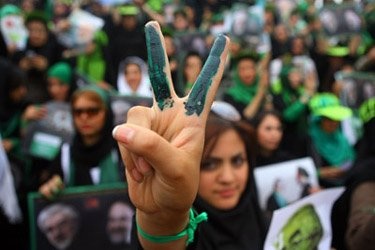Not only did President Obama vote against the Surge while in the Senate, but his new course for Iraq is named something reminiscent of a girly vampire novel. But this could be the least of the strikes against President Obama’s “Operation New Dawn.”
The Institute for the Study of War (ISW), a non-partisan, non-profit think tank in Washington, D.C., hosted a press conference call on August 30 and released a backgrounder document ahead of the September 1 change in America’s Iraq war, when the 50,000 U.S. forces still in Iraq will shift their focus from fighting the war to teaching the Iraqis how to best fight it themselves.
Marisa Cochrane Sullivan, ISW deputy director, said that U.S. forces would continue to provide training and remain in disputed areas. They would also partner with Iraqi special forces to continue putting pressure on terrorist groups as well as lend support to groups like USAID and the UN as they build Iraq.
The U.S. has been doing these things for years, but the ratio of U.S. to Iraqi forces will now change drastically. As one soldier said in an interview with the Bangor Daily News in Maine, his job will involve “lots of advising and supporting, with the distinction being that this is not a combat thing.”
But this withdrawal and change of focus is not the triumph of foreign policy that the Obama administration would like it to be. The Guardian reports that Iraq’s foreign minister called this withdrawal an “embarrassment” because an Iraqi government isn’t in place. And recent casualty figures indicate increased violence, leaving plans for a complete troop withdrawal in 2011 sounding overly optimistic.
The problem is Iran, a hungry next door neighbor, hostile to America and looking to increase its influence in Iraq as America’s decreases. According to the ISW backgrounder by Michal Harari, Iran has supported Iraq’s terrorist networks for years, and it appears Iran wants to unite the terrorist factions to increase influence over them. In addition, Iran funds Iraqi political parties to the tune of eight million dollars a month according to U.S. military officials in February.
Because of this, the U.S. faces a catch-22 as it attempts to withdraw from Iraq completely. On the one hand, staying in Iraq continues to drain our own economy, and no one wants to stay in Iraq forever. On the other, pulling out before Iraq can stand on its own two feet gives Iran, a hostile nation, a greater opportunity to assert its own dominance. If we withdraw and Iraq falls under Iran’s control, then we’ve lost what should be a strong ally in the Middle East, not to mention the money invested in that country.
Of course, Iraq is resilient, and won’t just be pushed over by Iran. Council on Foreign Relations fellow, ISW contributor and former U.S. Army officer James Danly believes that the democracy in Iraq is strong enough to endure the withdraw of U.S. forces. “I think the Iraqi democracy is extremely robust,” he said during the press conference call.
Even so, there are Iraqis who don’t want the U.S. to leave their country in the state it is in, Iraqis who have their own doubts about the ability of their country to remain stable under pressure from Iran. The Guardian reported that a “civil servant” in Basra, Hashim Laebbei, said America has “surrendered [Iraq] to Iran” by withdrawing its troops.
President Obama acknowledged on August 31 when he spoke at a military base in Texas that America’s job in Iraq isn’t over. “Our task in Iraq is not yet completed,” Obama said. “Our combat phase is over. But we’ve worked too hard to neglect the continuing work that has to be done.”
Hopefully he believes that, and will commit the resources and manpower needed to see the job through to completion. I’d rather have that than another Iran. And while Iraq has hardly been a cheap engagement, the eight years we’ve spent there cost less than the stimulus package. Let’s at least get an ally out of this investment. Unlike the stimulus, it doesn’t have to be a waste.

COMMENTS
Please let us know if you're having issues with commenting.